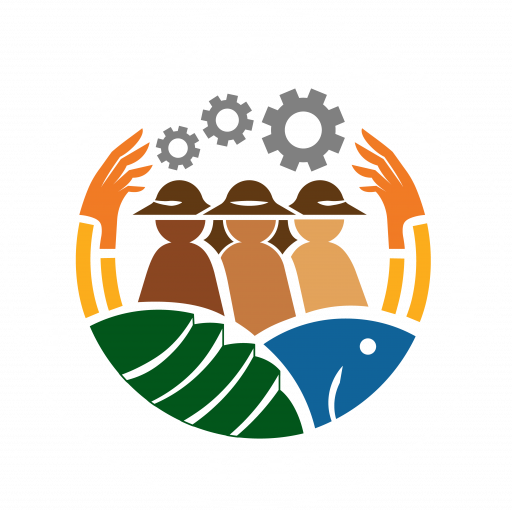“New Room for Mushroom” depicts the success story of Minlasag Farfish Association from the municipality of Sibutad, Zamboanga del Norte province. The group received interventions on the Organic Mushroom Production Project.
Background
Sibutad, 5th class municipality in the province of Zamboanga del Norte, has 61% poverty incidence. This municipality has 16 barangays and six of which are coastal areas.
Since 2010, all farmers’ associations in this municipality were organized and registered under the Department of Labor and Employment (DOLE) through the joint efforts of the associations and Office of the Municipal Agriculturist. The same year, these associations received interventions from the Mindanao Rural Development Program (MRDP).
In2017, the Special Area for Agricultural Development Program (SAAD) and the Local Government Unit became partners in poverty alleviation for the identified poorest of the poor and marginalized farmers in Sibutad.
Focusing on the poorest community in the municipality, five (5) associations received6x8 (48 sq.m) mushroom house each with complete supplies and materials for organic mushroom production as well as a two-day capability and hands-on training on the project.

The members of Minlasag Farfish Association from Sibutad, Zamboanga del Norte
Among the five associations is the MinlasagFarfish Association headed by Yolanda Macapas, 5th President elected since 2011. The group has 42 members (22 female and 20 male), wherein 11 are beneficiaries of the Department of Social Welfare and Development’s Pantawid Pamilyang Pilipino Program (4Ps) and one is a member of Indigenous People. The association derived its name “farfish” for supporting both 34 FARmers and 10 FISherfolks.
After the capability and hands-on training for organic mushroom production on February 26-27, 2019, the association produced approximately 1,500 fruiting bags, of which 600 of these are now yielding 3 – 4 kilos of organic mushroom a day. By the end of July 2019, they are targeting to produce 2,000 fruiting bags.
INNOVATION / GOOD PRACTICES
It was a drought season when the production of organic mushroom commenced. The farmer-partners experience scarcity in planting materials, such as water and rice straws. These were conquered by the group through the division of workloads. The men are in charge of gathering rice straws and scouting to nearby barangays to meet the desired volume. The women, through the leadership of the FA President, are tasked to recruit a member with enough supply of potable water in the community to be with their association.
They were able to gather all materials and be the first association to make more than 1,000 fruiting bags in less than 3 months through “bayanihan”.
STATUS
 In January 2019, five mushroom houses were declared 100% physically completed. In March 2019, the MinlasagFarfish Association started to earn. The daily harvest was sold around the community with theMinlasag Cooperative as their market display.
In January 2019, five mushroom houses were declared 100% physically completed. In March 2019, the MinlasagFarfish Association started to earn. The daily harvest was sold around the community with theMinlasag Cooperative as their market display.
In four months of implementation, an estimate of more than Php 7,000.00 is the net income of the association from the 600 yielding fruiting bags.
For 2018, the DA-SAAD will continue to support the five (5) associations. It will provide chiller, materials, and supplies for organic mushroom production.
FACILITATING FACTORS / CHALLENGES
To pursue the organic mushroom project is a big challenge. The innate desire of the association and the support of LGU will be factors of the farmers’ success.
The association follows the division of workloads and rotation of duties in maintaining and sustaining the project. Men and women have different tasks. It is also ensured that maintaining the mushroom house is done daily. All technical needs in the production stage are constantly monitored and helped addressed by the Office of the Municipal Agriculturist.
One of the challenges that occurred during the planting of spawn is the requirement of a delicate procedure to prevent contamination. Nevertheless, the association was able to surmount difficulties and they just experienced minimal issues of contamination.
The daily harvest can be sold around the community but sometimes, unsold mushrooms are offered as a credit to interested consumers to ensure that mushrooms displayed daily are fresh.
IMPACT
The project is highly beneficial to the farmer-partners as it helped 44 marginalized farmers and fisherfolk. The materials for production are mainly from the farmers’ farm. Instead of wasting and burning rice straws and sawdust, they can now be used as main substrates in making fruiting bags.
POLICY /PROGRAMME/COOPERATION IMPLICATION
To ensure sustainable project implementation, the association formulated policies that fairly serve both association and members. The farmer-partners will receive 60% of net income while 40% will be given back to the association.
Once the five associations met their projected 2,000 fruiting bags, they will negotiate with markets around Dipolog malls and will venture into value-adding activities like mushroom chips processing.
In the next coming years, the partner-farmers envision Sibutad to be the “mushroom hub” of Zamboanga del Norte.
